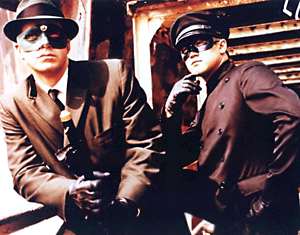I’m a tad upset. The House just voted (all the Republicans and ten Democrats) to de-fund Planned Parenthood.
Why?
Planned Parenthood has been the target for the Right since it was founded in the 1920s—during a time, it should be stressed, when you could go to jail for distributing information about contraception. Jail. Because such information was seen as destructive of public morals.
Again, why? This should be a no-brainer for Conservatives. Privacy. The ability to control your own person. The responsible management of your own life. But time and again we keep running up against this perverse negative reaction to anything that smacks of responsible sexuality. I have said this before, but I think it bears repeating, that the right wing jeremiad against abortion has little to do with abortion—it is a war on sex.
Planned Parenthood is the number one provider of gynecological services for poor women, under and uninsured women, women with few other options if any. The fact is that no federal dollars have been spent on abortion since the Hyde amendment was passed in 1976, and yet—and yet—this persecution continues. It only makes sense if we stop thinking that this has anything to do with fetuses.
There is a very silly movie from 1964 called Kisses For My President. It starred Polly Bergen as the first woman president of the United States and Fred MacMurray as her hapless husband. You can imagine what the bulk of it is about—he has to fill the role of First Lady. It’s a comedy. Ostensibly. As the frustrations of his position mount (I choose my words carefully) he clearly resents his position and decides to do something about it. His solution? He gets his wife pregnant.
Now, for some reason which today would be head-scratchable, she has to resign as president. On this occasion, she yields to the inevitable and MacMurray is beaming like a man once more in charge.
Does anyone not see the horror in that scenario?
In 1964 businesses were still firing women who became pregnant. There were no laws to prevent this. The idea that a woman might want some say over her own life was still bizarre. The sexual revolution was just underway and most Americans didn’t like it so much—not because they minded the idea of more sex so much as they hated the idea that their kids would be doing it. Once it was well underway, though, it became far clearer that underlying all the cheesy jokes and Playboy aesthetics was the very serious issue of providing half the population with the ability to manage their own lives, their own dreams, their own futures. Roe v. Wade was the capstone of this movement because—
This must be stressed today because we have generations that have grown up not knowing this history, not having to live under these conditions.
—because the inability of women to say no in matters of personal sexuality and to control their own fertility trapped many of them in cycles of dependence and poverty. The fruits of the sexual revolution were not that boys got to get laid a lot more but that women have the final say in whether, when, if, how, and with whom any laying was going to take place.
For women who yearn for a baby and live in circumstances in which such an advent is welcome, wanted, and cherished and is not a crushing weight and a drain on small resources, it may be difficult to understand what a calamity an unwanted pregnancy might be. But for any woman who wants to have a say in her own procreative decisions, there should be no question today that the Right, through the instrument of the Republican Party, is trying to turn this country back to a time when the movie cited above makes perfect sense and offers a welcome message.
What it really means is that if you don’t have the means in hand, and you’re a woman, these people want you to be silent, subservient, and second-class.
The reality is that women with money have always had access to abortion. The euphemistic “time in the country” mentioned in so many mauve novels meant just that. If you were poor, you went to a butcher in a dirty room and took your chances whether it was successful or you ended up with an infection that would kill you or a hemorrhage that wouldn’t stop.
The Republican Party is tied to a constituency of moneyed interests and moral morons who care nothing for average people. Why we continue to vote them into power is a testament to a propaganda machine that has worked tirelessly to convince us that our interests are best served by having all protections stripped from us if we live below a certain income level. They are marching us forward in our goal to become the wealthiest third world nation on the planet.

